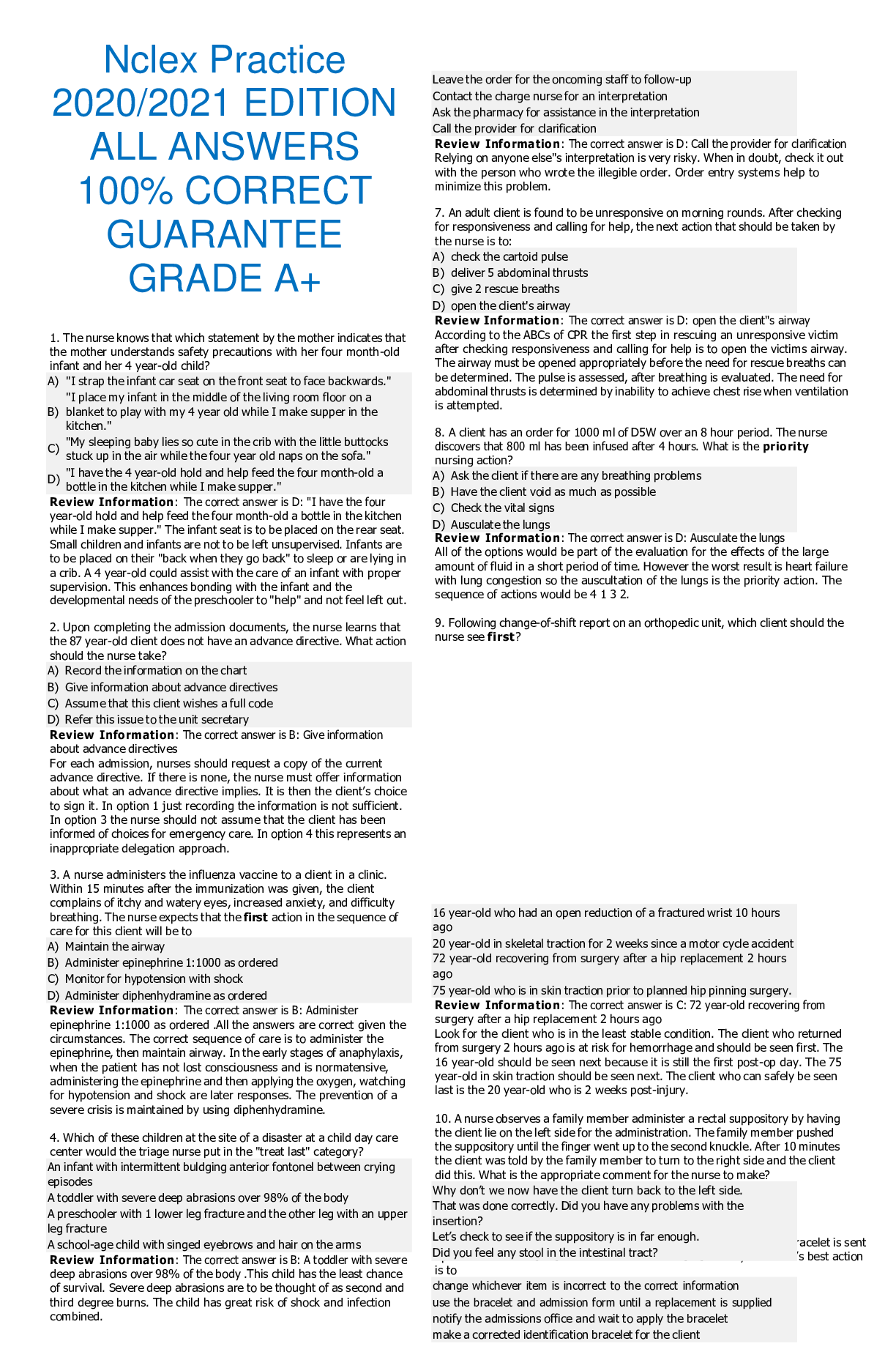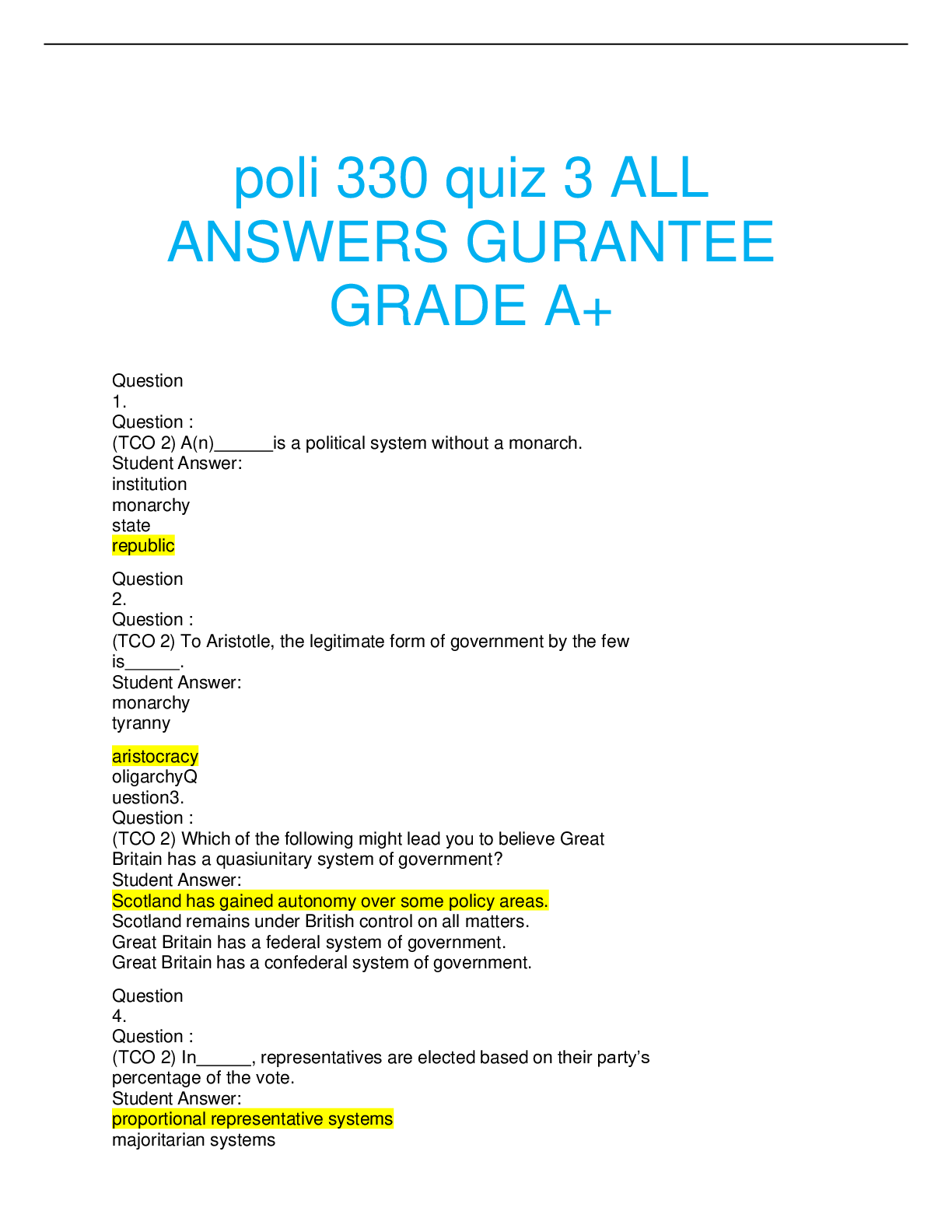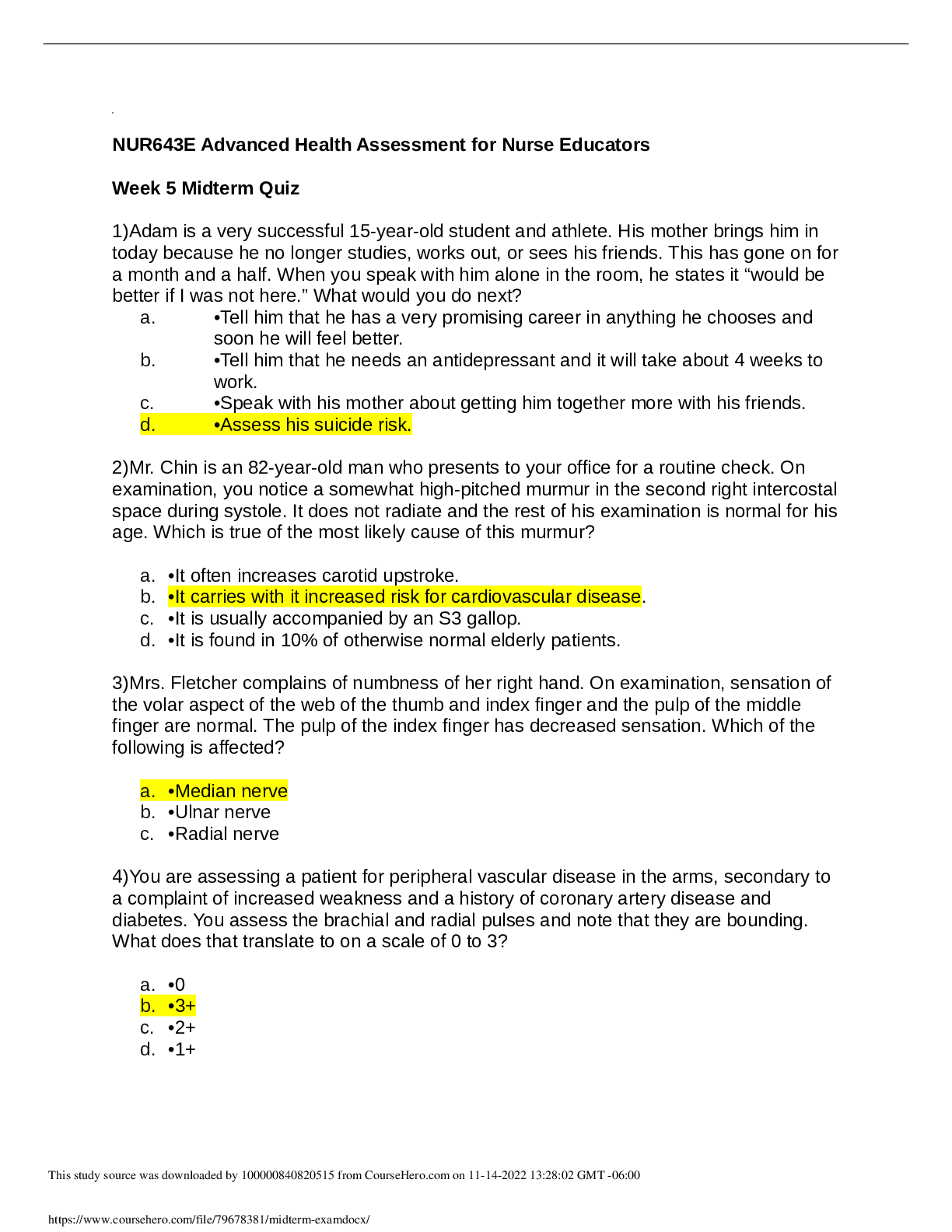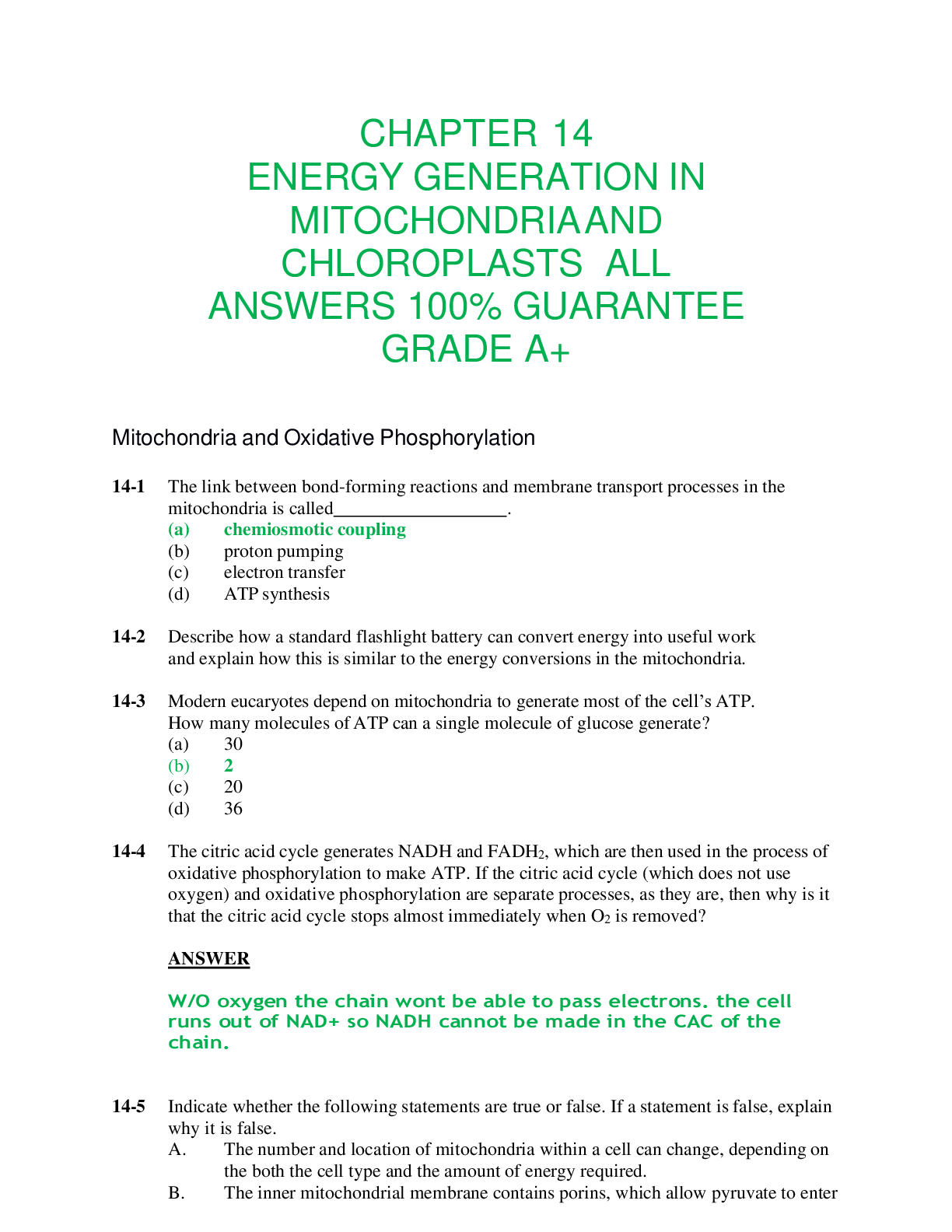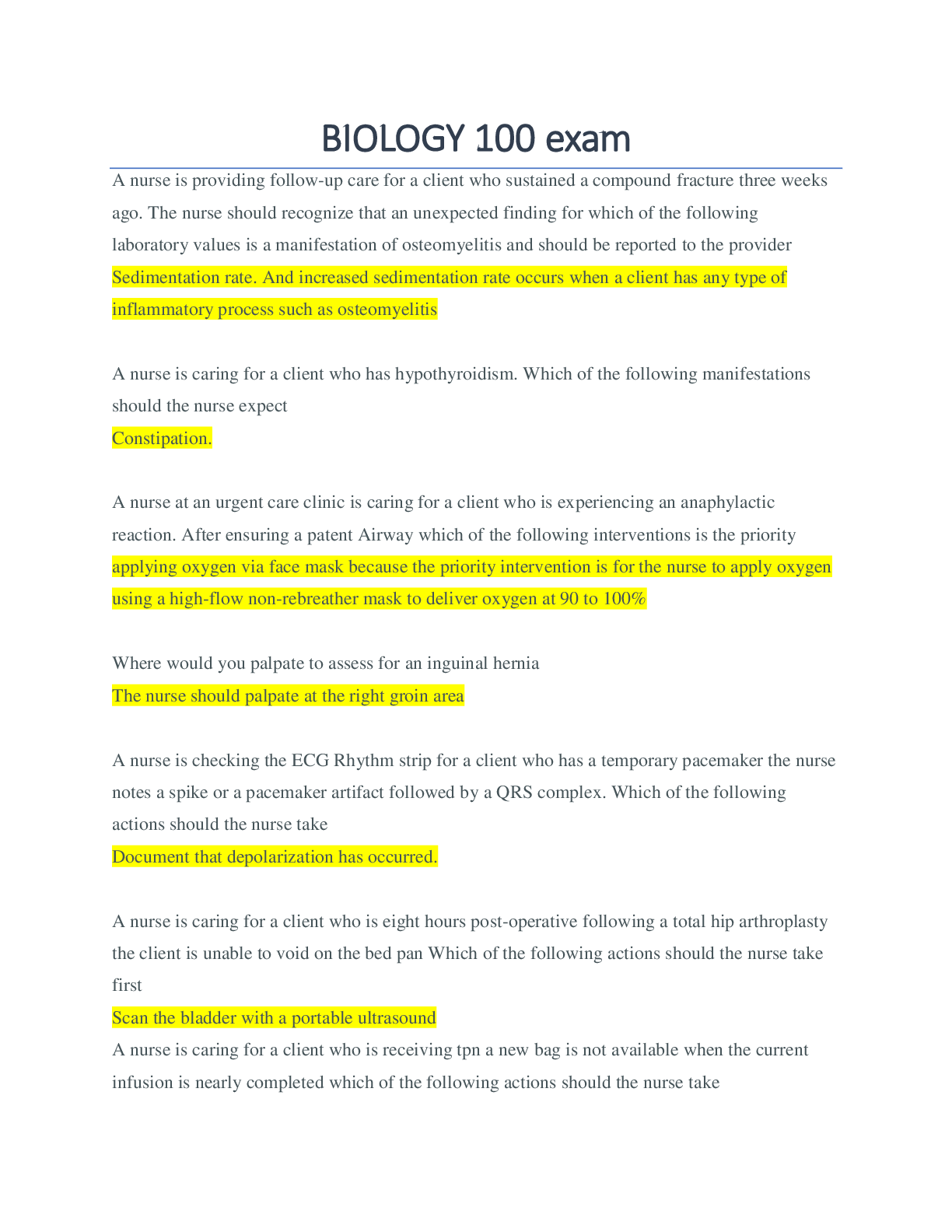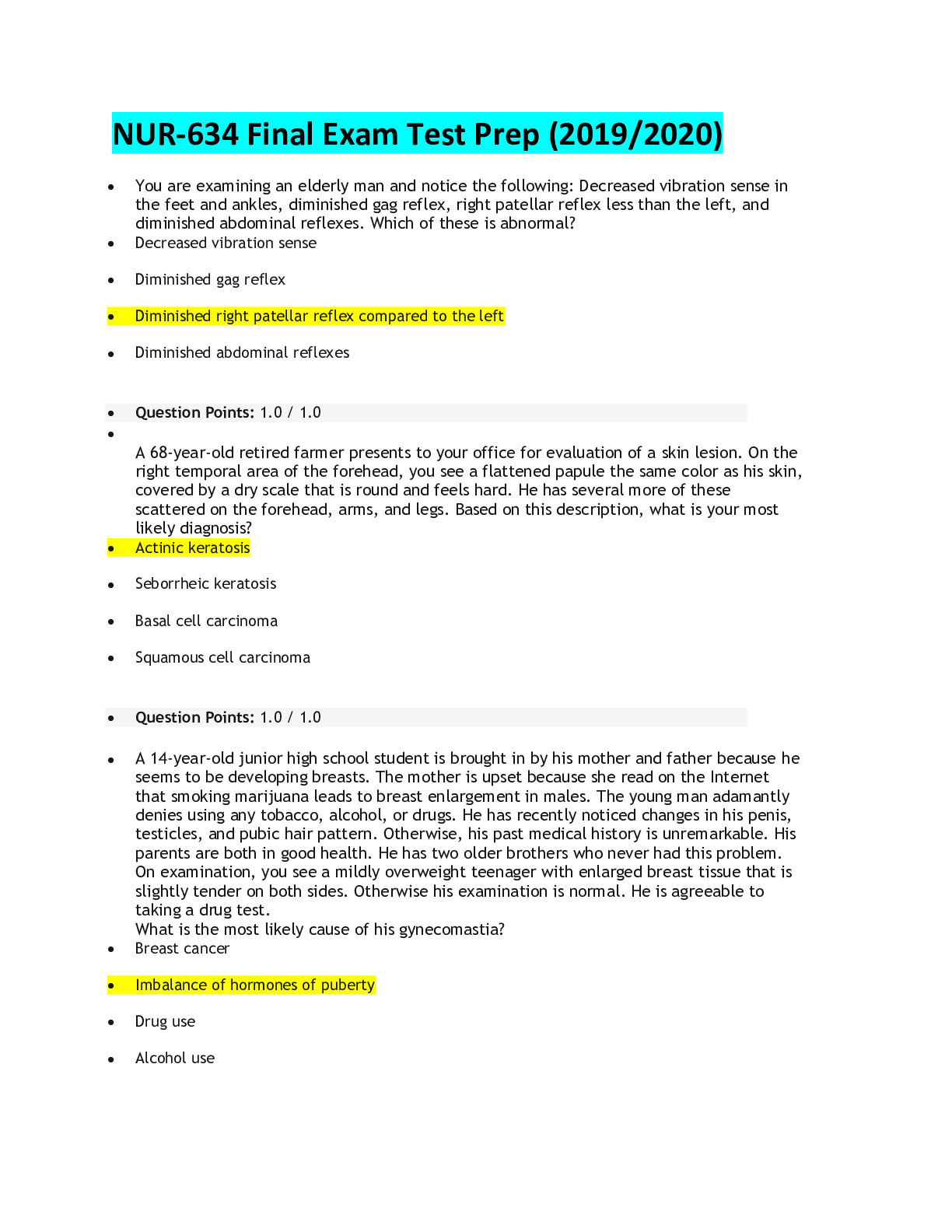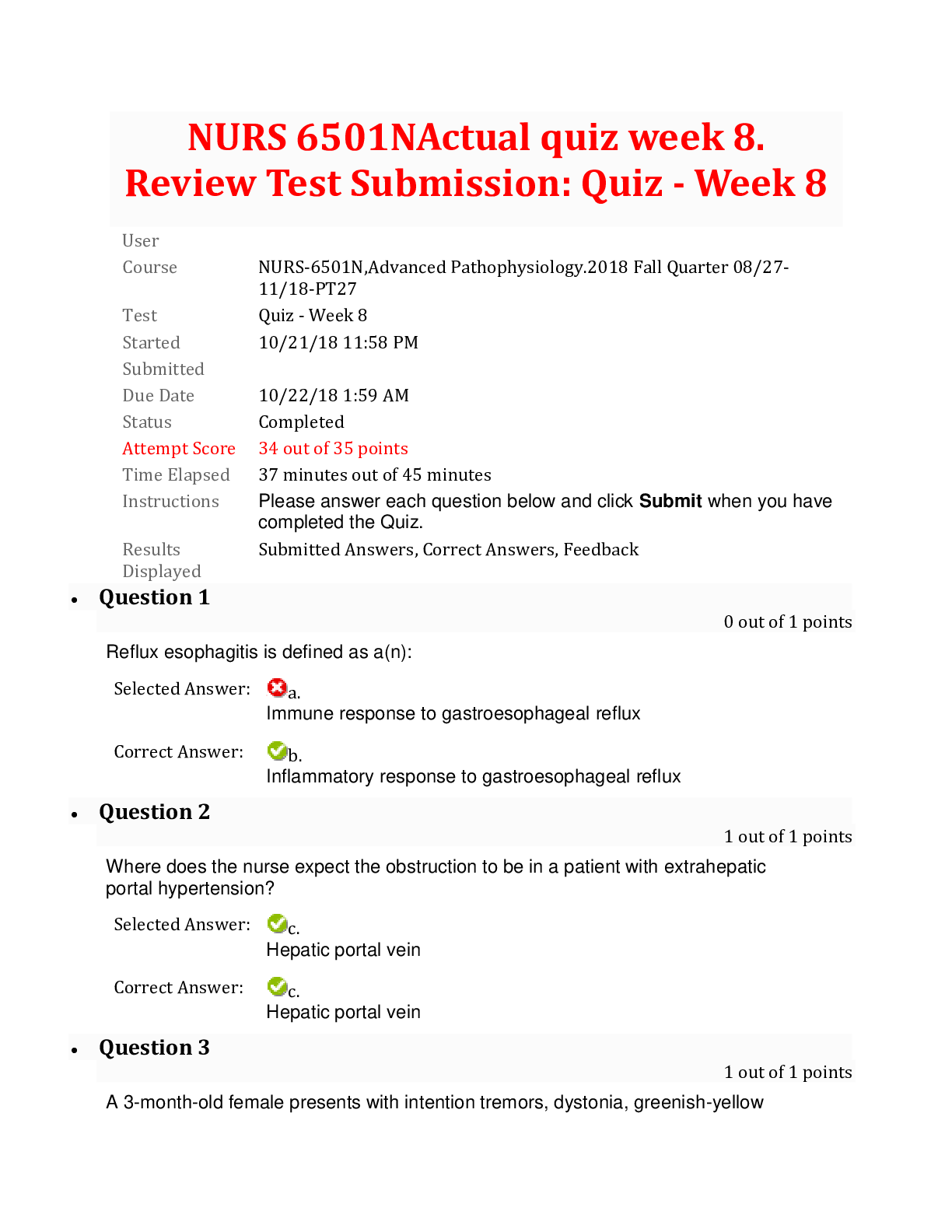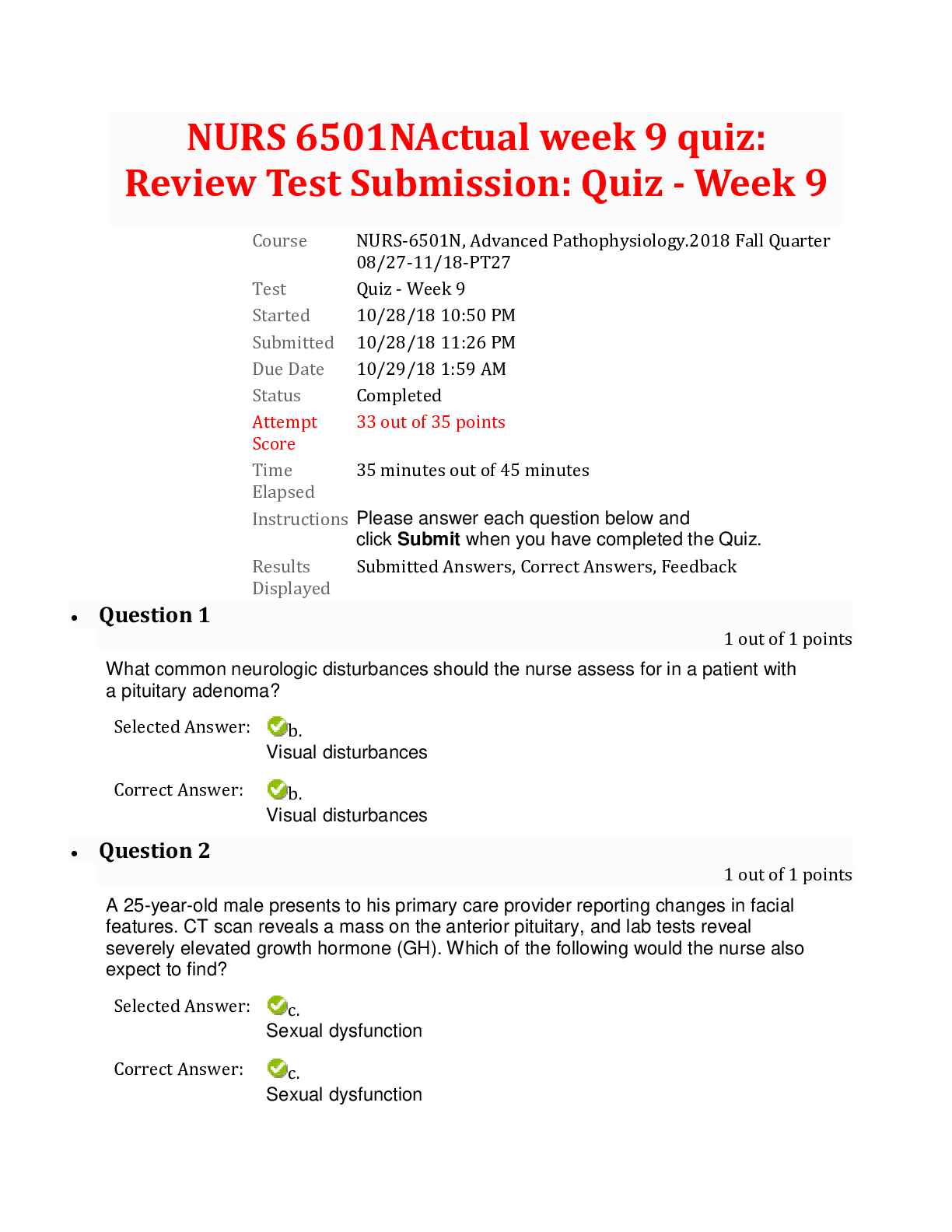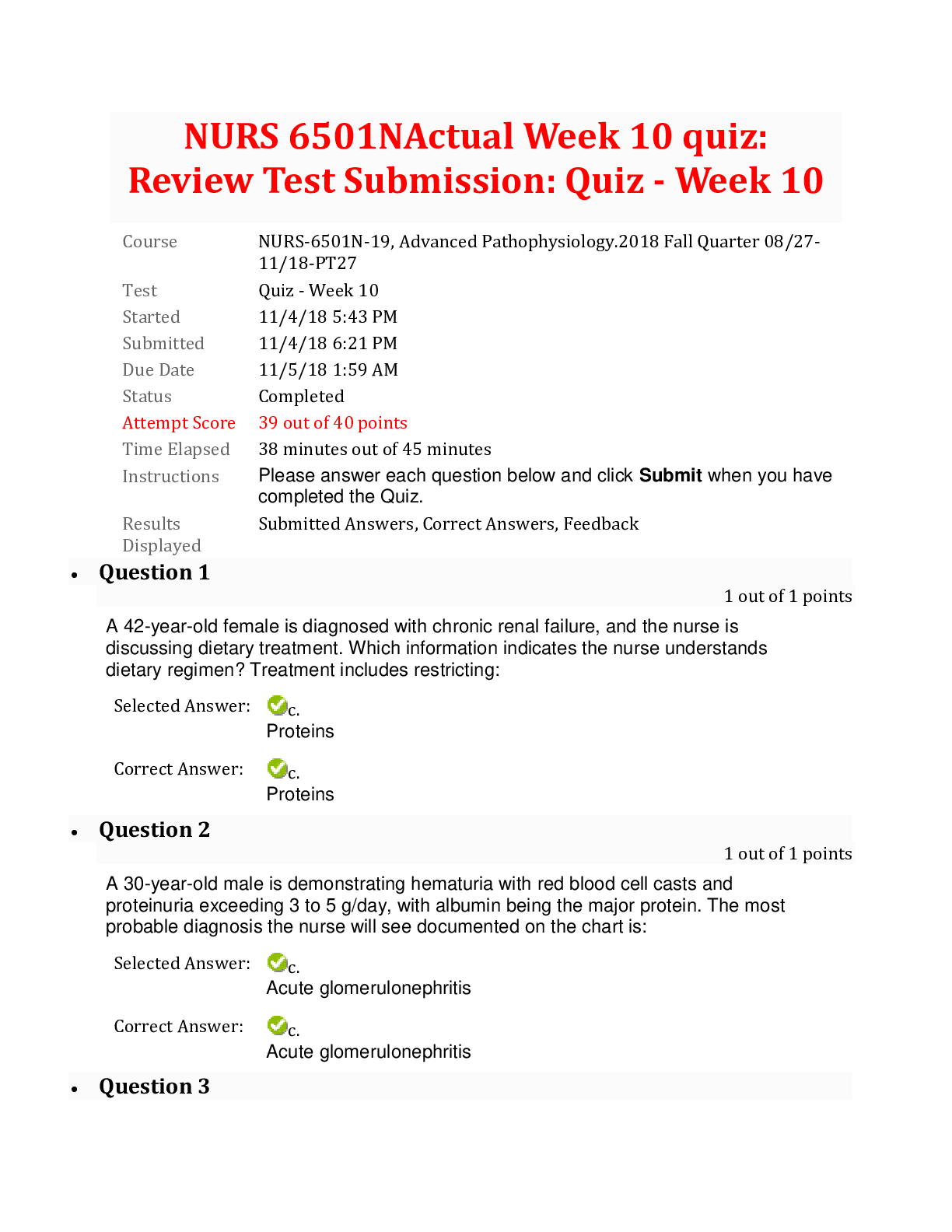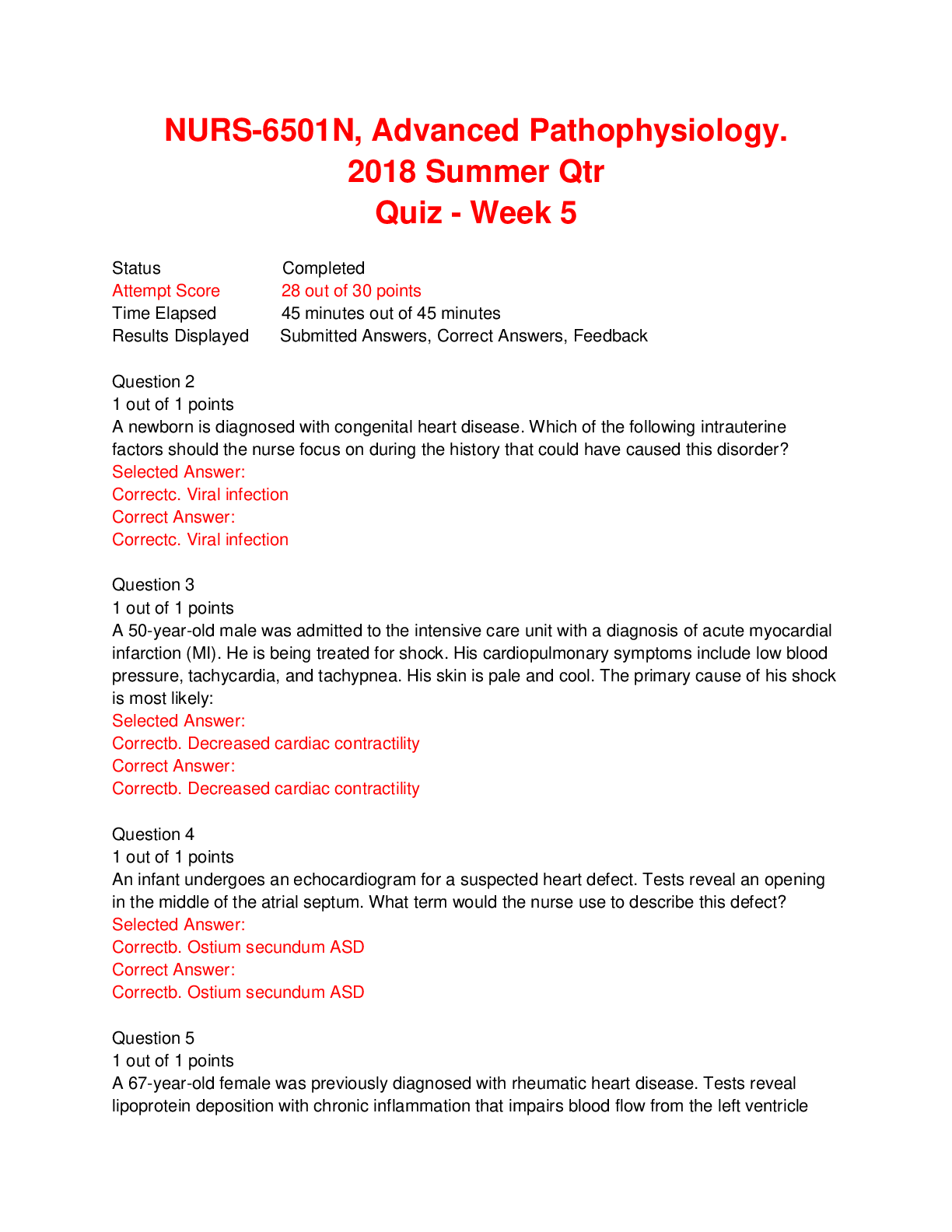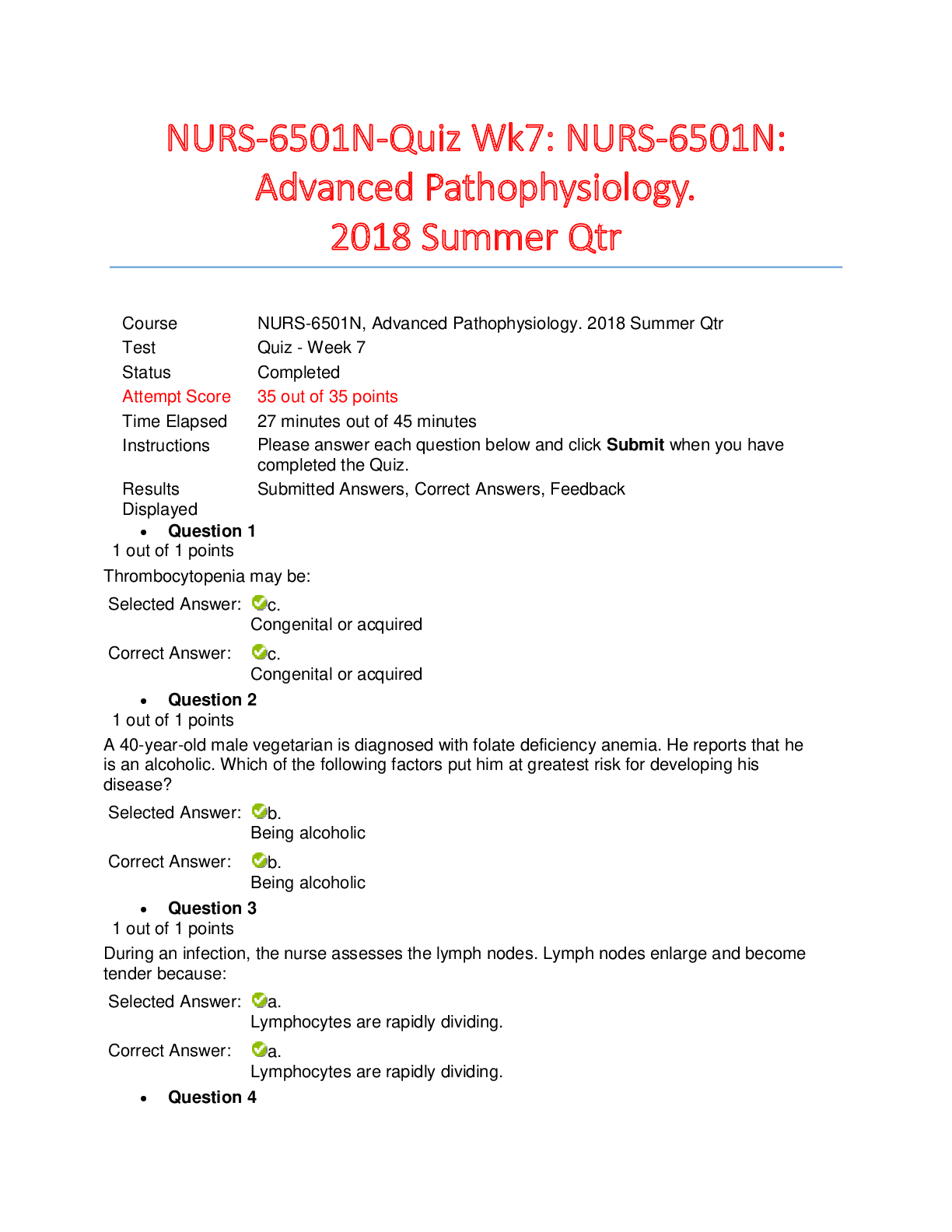Business > QUESTIONS & ANSWERS > Quiz 2 100% CORRECT ANSWERS GUARANTEE GRADE A+ (All)
Quiz 2 100% CORRECT ANSWERS GUARANTEE GRADE A+
Document Content and Description Below
Business Strategy Game - BSG Online - Learning From Winners 2016 1. As can be confirmed from information on the Help Screen for a company's Plant Operations Report (see the Plant Investment sect... ion), if a company adds new plant capacity at a cost of $30 million, then its annual depreciation costs will rise by 4% or $1.200,000. 15% or $4,500,000. 8% or $2,400,000. 5% or $1,500,000. 10% or $3,000.000. 2. Which of the following statements about striving to reduce labor costs per pair produced at each of the company's plants is true? Achieving labor productivity of 3,000 pairs per worker at a plant is nearly always sufficiently high for a company's labor costs per pair produced at the plant to be close to the lowest in the industry. The cheapest way for a company to achieve low labor costs per pair produced is to give plant workers base pay increases in the range of 10% to 15% annually in each geographic region where it has plants, pay a piecework incentive of no more than $0.25 per pair, and spend minimally on best practices training for plant workers. To achieve labor costs per pair produced at a particular plant that are "attractively low" compared to other plants in the same geographic region, company managers must--each decision round--seek out a combination of base pay increases, piecework incentives per non-defective pair produced, and expenditures for best practices training at the plant that is projected to produce big enough gains in labor productivity to drive down labor costs per pair produced even further. Companies producing 50 models/styles of branded footwear having a high S/Q rating at a plant in the Asia-Pacific region are unlikely to be able to achieve labor costs per pair produced that are below the industry average. The simplest and most reliable way for a company to achieve labor costs per pair produced that are below the industry average is to pay a piecework incentive of $1.50 per pair in every geographic region where it has plants. 3. Assume a company has 10 million shares of stock outstanding and that its Income Statement for Year 12 is as follows: Based on the above income statement data, the company's operating profit margin and EPS are 15.6% and $5.00. 15.6% and $2.80. 8.75% and $2.80. 15.6% and $4.00 12.5% and $5.00 4. Which one of the following is NOT a way to improve the SIC) rating of branded pairs produced at a particular plant? Increasing the percentage use of superior materials Increasing Best Practices Training expenditures per worker Increasing piecework incentive pay per non-defective pair produced Increasing expenditures for enhanced styling/features Increasing expenditures for TQM/Six Sigma programs 5. A company cannot effectively differentiate its branded footwear from the brands of rivals by delivering orders for branded footwear to footwear retailers in a shorter time than most all other rivals. spending more on advertising than most all other rivals. producing and marketing branded footwear with a higher S/Q rating than the branded footwear of most all other rivals. refraining from bidding on contracts to supply private-label footwear to chain [Show More]
Last updated: 2 years ago
Preview 1 out of 36 pages
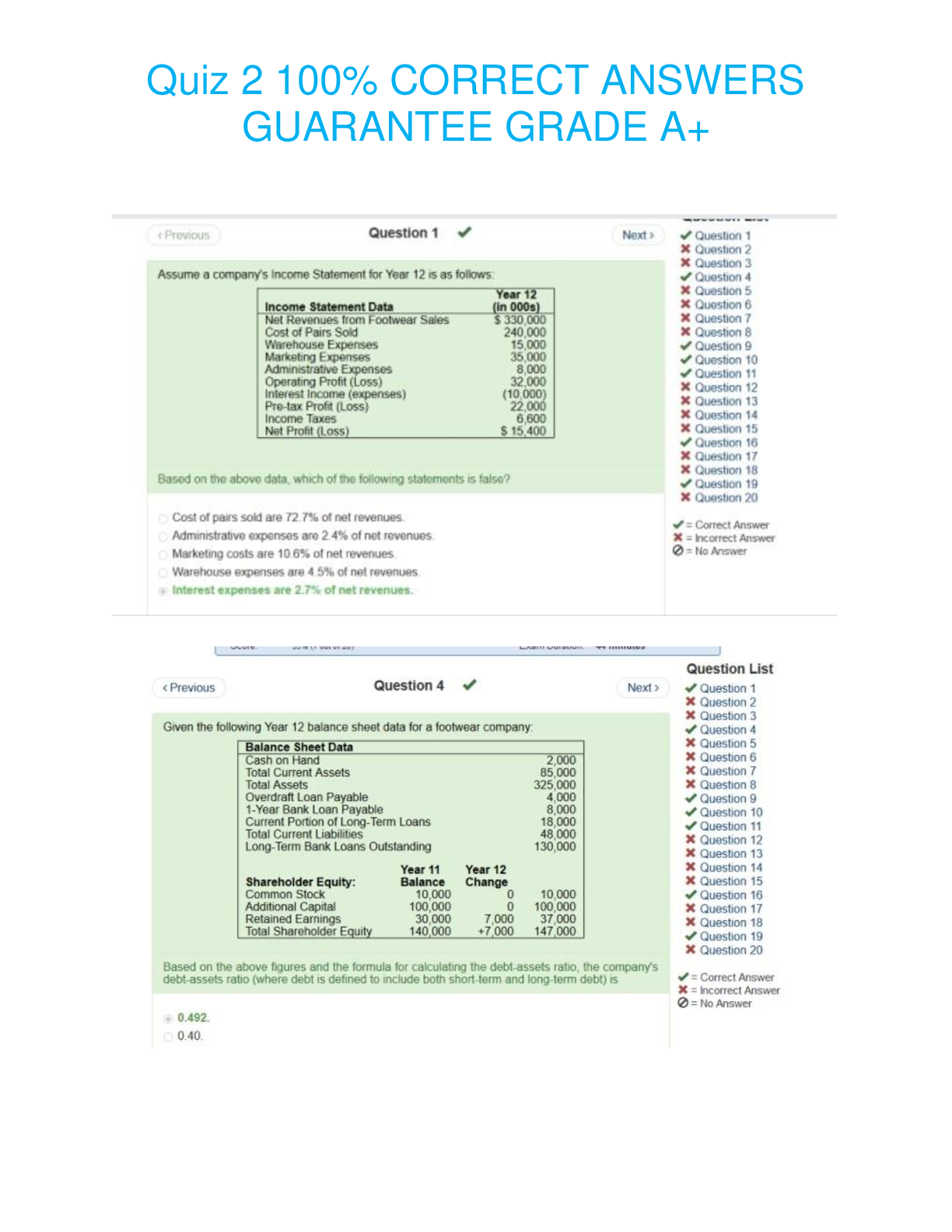
Buy this document to get the full access instantly
Instant Download Access after purchase
Buy NowInstant download
We Accept:

Reviews( 0 )
$9.00
Can't find what you want? Try our AI powered Search
Document information
Connected school, study & course
About the document
Uploaded On
Oct 01, 2021
Number of pages
36
Written in
Additional information
This document has been written for:
Uploaded
Oct 01, 2021
Downloads
0
Views
73





